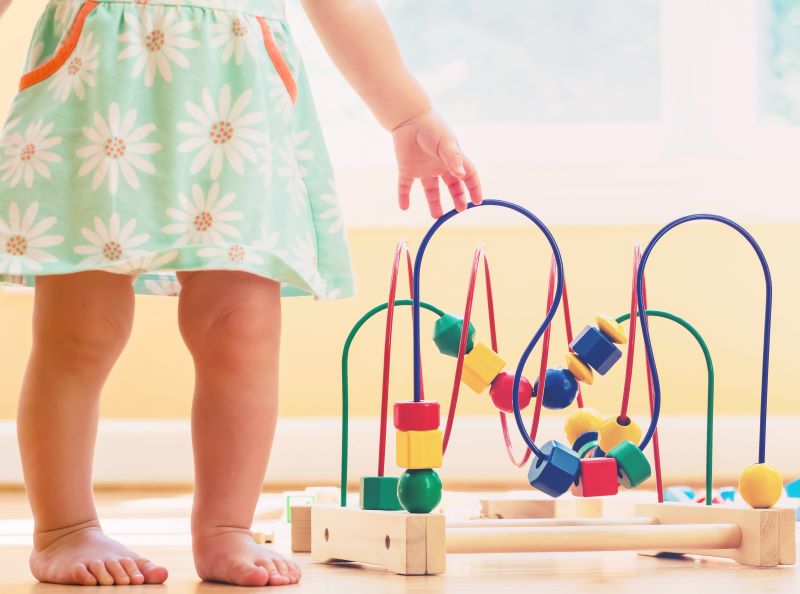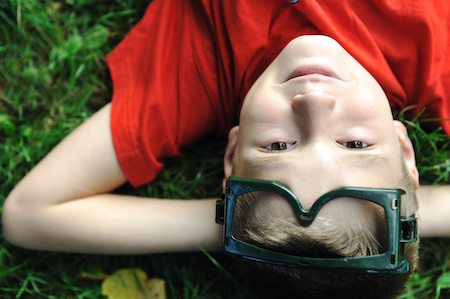 Since the day children are born, we want to raise them to be self-sufficient and great people. In order to achieve these expectations, self-discipline and self-control must be built. Teaching these character traits can be quite the challenge and parents often find themselves correcting a child’s bad behavior- whatever it may be. A lot of issues can be avoided by self-control and self-discipline.
Since the day children are born, we want to raise them to be self-sufficient and great people. In order to achieve these expectations, self-discipline and self-control must be built. Teaching these character traits can be quite the challenge and parents often find themselves correcting a child’s bad behavior- whatever it may be. A lot of issues can be avoided by self-control and self-discipline.
Here are six ways to build self-discipline in your children so that they develop into a rational, collected adult:
1. Teach self-discipline at an early age
This is a rule that goes for pretty much any behavior you want to teach to your child. Starting early will help your child recognize and learn self-discipline and self-control. If you wait to teach it down the road, bad habits could have already formed and it will be harder to transition your child back. Things you can do to teach them self-discipline are having them clean up after themselves, such as toys, food, etc.
2. Have routines
Routines and schedules are a key factor in any child’s life. Schedules and routines are important because routines give children a sense of security in regards to what they have to do and when, and they also help them develop self-discipline. This act of responsibility will give them a sense of what to do, even when nobody is watching. Create a daily or weekly schedule for them to follow and when responsibilities are completed, make sure they do not go unnoticed. As routines become second-nature, the self-discipline does as well.
3. Teach children to respond to corrections in a positive way
Teach children to hear corrections without getting angry or responding negatively. Most children hate being corrected and will become mad and irritated. By teaching children to respond in a gracious and acceptable manner, they will learn how to control their impulses, thus creating self-control. Although teaching a child this can be challenging, once acquired, your child will gain confidence to learn and to not be afraid of being corrected.
4. Have rewards, consequences, and rules
Rewards go back to creating routines and schedules.When your child does something good without being told or shows an act of kindness, make sure you are aware and reward the behavior. This will make them want to do more good. It does not even have to be scheduled based. It can simply be a good grade on a test or an amazing job at their soccer game. Whatever the case is, make them feel appreciated. If your child does something they were not suppose to do, give them consequences. This will teach them that their behavior is unacceptable. Express to them how upset the situation made you feel and take something away from them, such as T.V, a phone, or video game. Lastly, always have rules. Rules let children know what they can and cannot do. Rules can be things like only T.V and video games after homework is done, no dessert unless everything on your plate is finished, or no going outside to play unless your room is clean. Simple, concrete rules will definitely increase a child’s self-control, self-discipline, and responsibility.
5. Encourage them to take on activities that require self-discipline
Sports and activities are a big deal when it comes to self-discipline. When kids are engaged in activities that require self-discipline, they enjoy the fun as well as the confidence they're learning. Sports will teach children how to work together as a team and teach them how to be responsible. They are responsible for showing up to practice and getting what needs to be done, done. Other activities like music or acting lessons, will teach kids memorization. They have to practice this on their own. All of these various types of activities develop self-discipline and give children a sense of accomplishment.
6. Be a role model!
Sometimes things get under your skin or out of hand and as a parent, your own self-control can slip. It is important that you try your hardest when it comes to self-control because children follow in their parents footsteps. If you are acting in a positive, confident, and self-controlled manner, your child will most likely adapt and want to follow.
References:
"Helping Children Develop Self Discipline." Effective Parenting. Effective Parenting. Web. 02 Nov. 2017.
"How to Teach Children Self-discipline." 6abc Philadelphia. N.p., 05 Aug. 2014. Web. 02 Nov. 2017.
Markham, Laura. "8 Steps to Help Your Child Develop Self Control." Psychology Today. Sussex Publishers, 17 June 2015. Web. 02 Nov. 2017.





